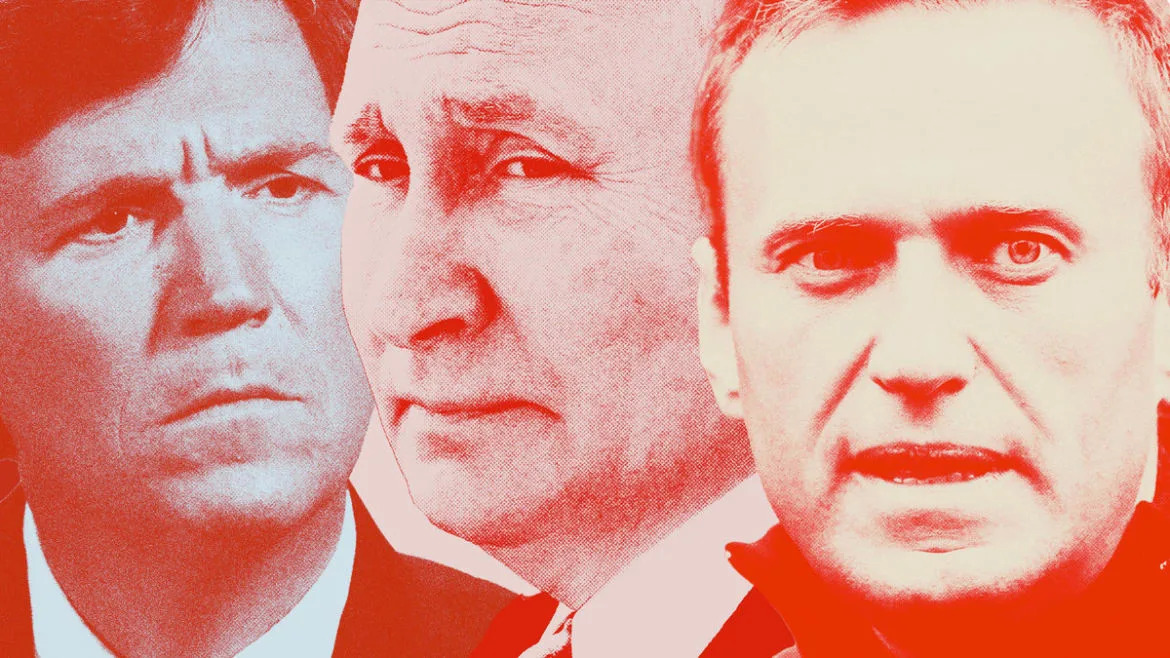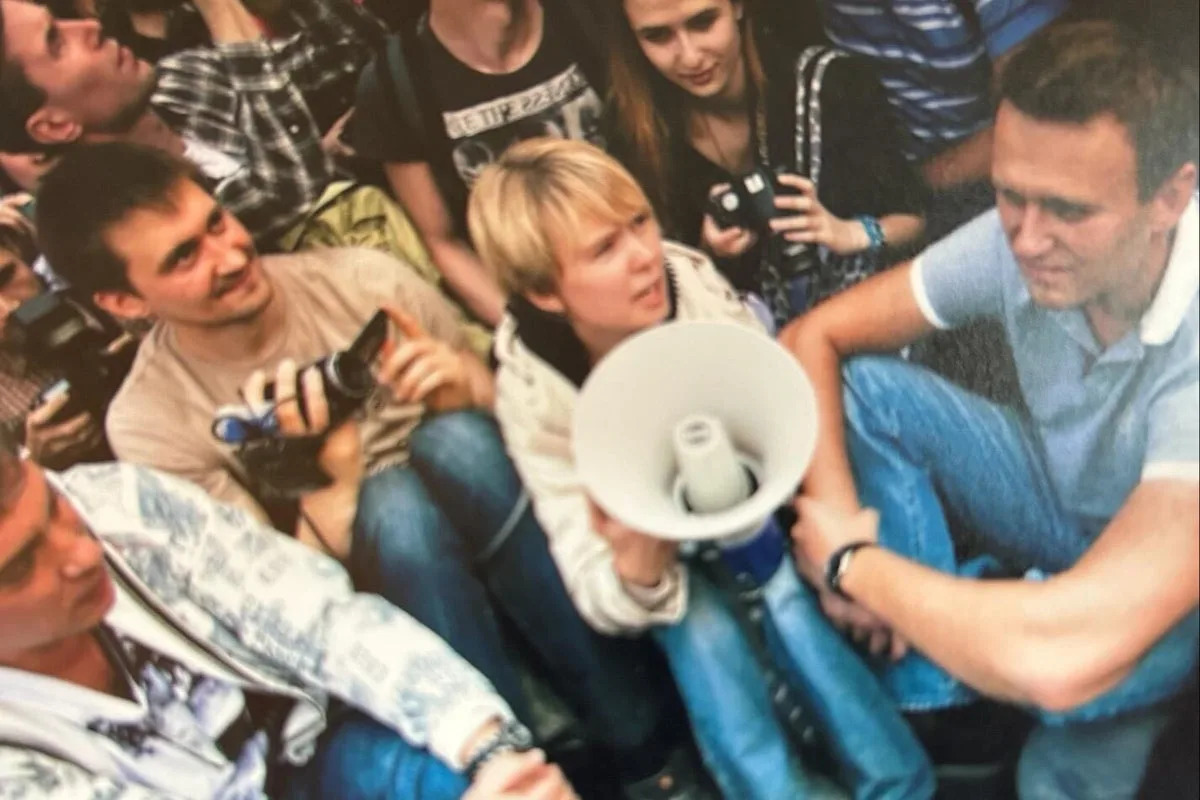Alexei Navalny, a thorn in the side of the Kremlin and Russia’s most prominent political dissident, has died in prison at the age of 47.
Navalny, a fierce critic of Russian president Vladimir Putin, had been sentenced to 19 years in a penal colony around 40 miles of the Arctic Circle in charges widely thought to be politically motivated.
The 47-year-old felt unwell after a walk at the jail and lost consciousness. An ambulance arrived to try to rehabilitate him, but he died, according to prison authorities.
Navalny was moved from his former prison in the Vladimir region of central Russia in December to the “special regime” penal colony — the highest security level of prisons in Russia.
The political agitator has been behind bars since January 2021 when Navalny had been behind bars since January 2021, when he returned to Moscow after recuperating in Germany from nerve agent poisoning that he blamed on the Kremlin.
Before his arrest, he campaigned against official corruption, organized major anti-Kremlin protests and ran for public office.
Here's a look at Navalny’s life, political activism and the charges he has faced through the years:
1976
4 June 4 — Navalny is born in a western part of the Moscow region.
1997
Graduates from Russia’s RUDN university, where he majored in law; earns a degree in economics in 2001 while working as a lawyer.
2004
Forms a movement against rampant overdevelopment in Moscow, according to his campaign website.

2008
Gains notoriety for alleging corruption in state-run corporations, such as gas giant Gazprom and oil behemoth Rosneft, through his blogs and other posts.
2010
Founds RosPil, an anti-corruption project run by a team of lawyers that analyzes spending of state agencies and companies, exposing violations and contesting them in court.
2011
December- Participates in mass protests sparked by reports of widespread rigging of Russia’s parliamentary election, and is arrested and jailed for 15 days for “defying a government official.”
2012
March - Following Mr Putin’s reelection and inauguration, mass protests break out in Moscow and elsewhere. Navalny accuses key figures, including then-Deputy Prime Minister Igor Shuvalov and Chechnya’s strongman leader, Ramzan Kadyrov, of corruption.
July - Russia’s Investigative Committee charges Navalny with embezzlement involving Kirovles, a state-owned timber company in the Kirov region, while acting as an adviser to the local governor. Navalny rejects the allegations as politically motivated.
December — The Investigative Committee launches another probe into alleged embezzlement at a Navalny-linked Russian subsidiary of Yves Rocher, a French cosmetics company. Navalny again says the allegations are politically motivated.
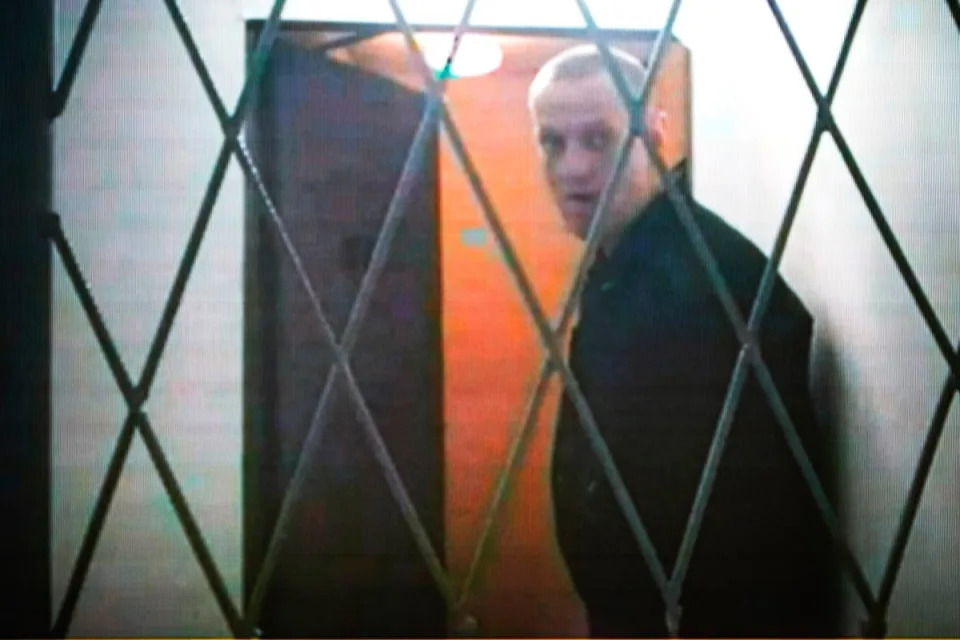
2013
Navalny runs for mayor in Moscow — a move the authorities not only allow but encourage in an attempt to put a veneer of democracy on the race that is designed to boost the profile of the incumbent, Sergei Sobyanin.
July - A court in Kirov convicts Navalny of embezzlement in the Kirovles case, sentencing him to five years in prison. The prosecution petitions to release Navalny from custody pending his appeal, and he resumes his campaign.
September — Official results show Navalny finishes second in the mayor’s race behind Sobyanin, with 27% of the vote, after a successful electoral and fundraising campaign collecting an unprecedented 97.3 million rubles ($2.9 million) from individual supporters.
October — A court hands Navalny a suspended sentence in the Kirovles case. February 2014 — Navalny is placed under house arrest in connection with the Yves Rocher case and banned from using the internet. His blog continues to be updated regularly, presumably by his team, detailing alleged corruption by various Russian officials.
December — Navalny and his brother, Oleg, are found guilty of fraud in the Yves Rocher case. Navalny receives a 3 ½-year suspended sentence, while his brother is handed a prison term. Both appeal to the European Court of Human Rights.
2015
December — Navalny’s Foundation for Fighting Corruption releases its first long-form video — a YouTube documentary called “Chaika,” which means “seagull” in Russian but is also the last name of then-Prosecutor General Yury Chaika.
The 44-minute video accuses him of corruption and alleged ties to a notorious criminal group and has piled up 26 million views on YouTube. Chaika and other Russian officials deny the accusations.
2016
February — The European Court of Human Rights rules that Russia violated Navalny’s right to a fair trial in the Kirovles case, ordering the government to pay his legal costs and damages.
November — Russia’s Supreme Court overturns Navalny’s sentence and sends the case back to the original court in the city of Kirov for review.
December — Navalny announces he will run in Russia’s 2018 presidential election.
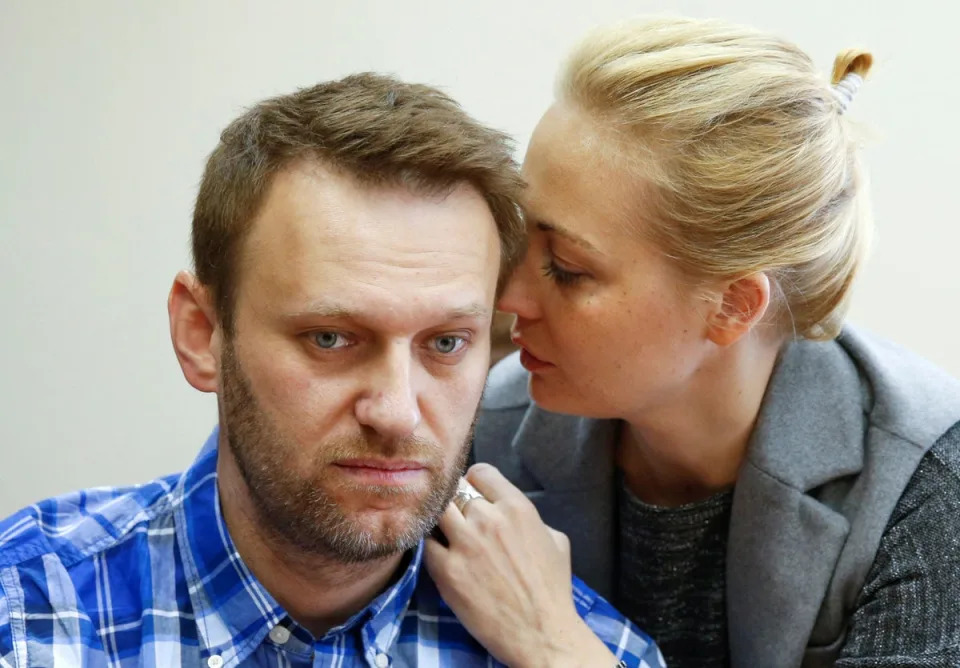
2017
February — The Kirov court retries Navalny and upholds his five-year suspended sentence from 2013.
March — Navalny releases a YouTube documentary accusing then-Prime Minister Dmitry Medvedev of corruption, getting over 7 million views in its first week. A series of anti-graft protests across Russia draw tens of thousands and there are mass arrests. Navalny tours the country to open campaign offices, holds big rallies and is jailed repeatedly for unauthorized demonstrations.
27 April — Unidentified assailants throw a green disinfectant in his face, damaging his right eye. He blames the attack on the Kremlin.
October — The European Court of Human Rights finds Navalny’s fraud conviction in the Yves Rocher case to be “arbitrary and manifestly unreasonable.”
December — Russia’s Central Electoral Commission bars him from running for president over his conviction in the Kirovles case, a move condemned by the EU as casting “serious doubt” on the election.
2019
July — Members of Navalny’s team, along with other opposition activists, are barred from running for Moscow city council, sparking protests that are violently dispersed, with thousands arrested. Navalny’s team responds by promoting the “Smart Voting” strategy, encouraging the election of any candidate except those from the Kremlin’s United Russia party. The strategy works, with the party losing its majority.
2020
Navalny seeks to deploy the Smart Voting strategy during regional elections in September and tours Siberia as part of the effort.
20 August — On a flight from the city of Tomsk, where he was working with local activists, Navalny falls ill and the plane makes an emergency landing in nearby Omsk. Hospitalized in a coma, Navalny’s team suspects he was poisoned.
22 August — A comatose Navalny is flown to a hospital in Berlin.
24 August — German authorities confirm Navalny was poisoned with a Soviet-era nerve agent. After he recovers, he blames the Kremlin, an accusation denied by Russian officials.
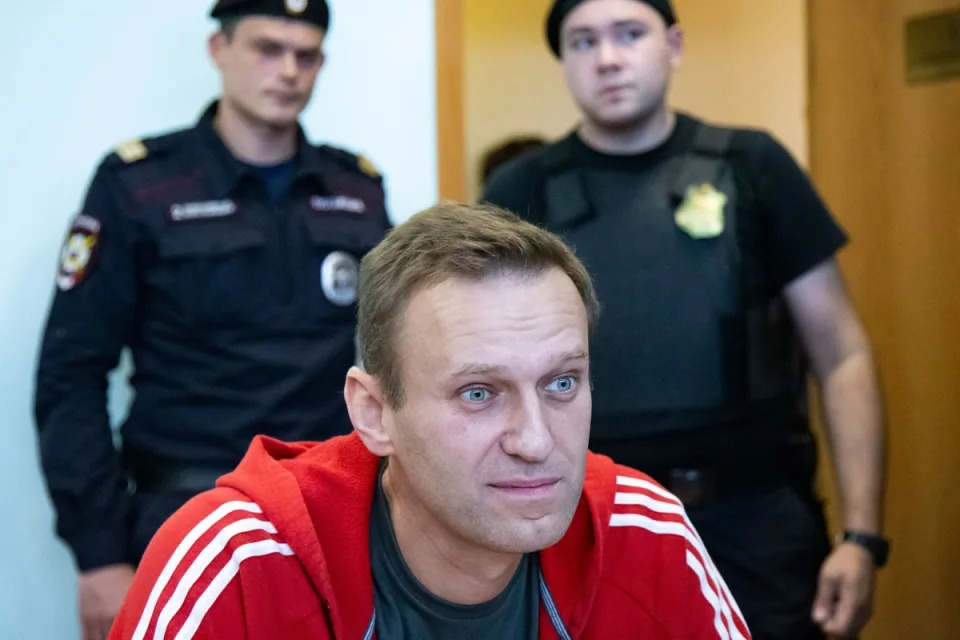
2021
17 January — After five months in Germany, Navalny is arrested upon his return to Russia, with authorities alleging his recuperation abroad violated the terms of his suspended sentence in the Yves Rocher case. His arrest triggers some of the biggest protests in Russia in years. Thousands are arrested.
2 February — A Moscow court orders Navalny to serve 2 ½ years in prison for his parole violation. While in prison, Navalny stages a three-week hunger strike to protest a lack of medical treatment and sleep deprivation.
June — A Moscow court outlaws Navalny’s Foundation for Fighting Corruption and about 40 regional offices as extremist, shutting down his political network. Close associates and team members face prosecution and leave Russia under pressure. Navalny maintains contact with his lawyers and team from prison, and they update his social media accounts.
2022
24 February — Russia invades Ukraine. Navalny condemns the war in social media posts from prison and during his court appearances.
22 March — Navalny is sentenced to an additional nine-year term for embezzlement and contempt of court in a case his supporters rejected as fabricated. He is transferred to a maximum-security prison in Russia’s western Vladimir region.
July — Navalny’s team announces the relaunch of the Anti-Corruption Foundation as an international organization with an advisory board including Francis Fukuyama, Anne Applebaum, and the European Parliament member and former Belgian Prime Minister Guy Verhofstadt.
Navalny continues to file lawsuits in prison and tries to form a labor union in the facility. In response, penitentiary officials start regularly placing him in solitary confinement over purported disciplinary violations such as failing to properly button his garment or to wash his face at a specified time.

2023
Over 400 Russian doctors sign an open letter to Mr Putin, urging an end to what it calls abuse of Navalny, following reports that he was denied basic medication after getting the flu. His team expresses concern about his health, saying in April he had acute stomach pain and suspected he was being slowly poisoned.
12 March — “Navalny,” a film about the attempt on the opposition leader’s life, wins the Oscar for best documentary feature.
26 April — Appearing on a videolink from prison during a hearing, Navalny says he was facing new extremism and terrorism charges that could keep him behind bars for the rest of his life. He adds sardonically that the charges imply that “I’m conducting terror attacks while sitting in prison.”
19 June — The trial begins in a make-shift courtroom in the Penal Colony No. 6 where Navalny is being held. Soon after it starts, the judge closes the trial for the public and the media despite Navalny’s demand to keep it open.
20 July — The prosecution in its closing arguments asks the court to sentence Navalny to 20 years in prison, the politician's team reports. Navalny says in a subsequent statement that he expects his sentence to be “huge … a Stalinist term,” referring to the Soviet dictator Joseph Stalin.
4 August - Navalny is sentenced to 19 years in prison for “extremism”. He was accused by the Russian authorities of creating an extremist community, financing extremist activities and a number of other crimes. According to a message on Telegram, he said: “I am serving a life sentence. Where life is measured by the duration of my life or the life of this regime. The number from verdict is not for me. It is for you.”
December - Navalny was transferred this month to a penal colony north of the Arctic Circle. His lawyer said Russian authorities wanted to isolate Navalny ahead of Russia’s March presidential election.
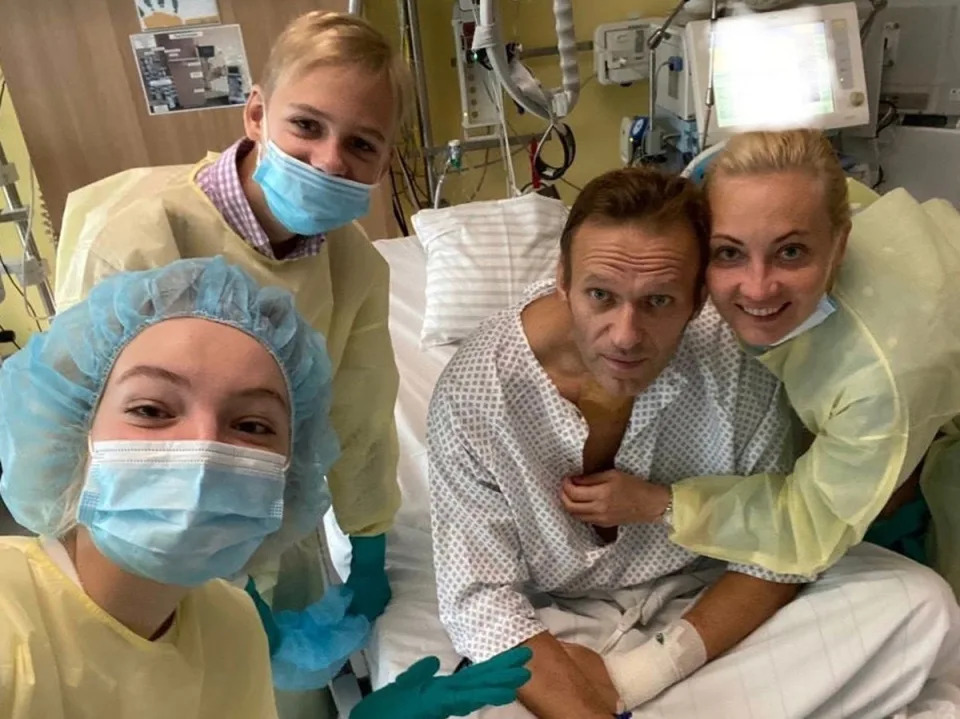
2024
9 January - Navalny sarcastically heaped praise on the polar conditions at the prison north of the Arctic Circle where he was moved to shortly before Christmas. In a post on the Telegram messaging app Navalny said he had been put in a punishment cell for his attitude as soon as he left quarantine at the so-called “Polar Wolf” prison colony. He said that walking for half an hour in those temperatures you “manage to grow a new nose, new ears and new fingers.”
11 January - Navalny appeared before a Supreme Court judge by video link on Thursday to argue for the right to longer meal breaks and access to more books in prison. Wearing a black prison uniform and standing behind bars in a small, bare room, Navalny, 47, appeared gaunt but spoke animatedly, at length and without notes.
17 January - From his penal camp Navalny, said that Putin’s state would one day crumble along with the post-Soviet elite which he cast as venal, power-hungry and duplicitous. “Lies, lies and nothing but lies. It will collapse and crumble. Putin’s state is not viable. One day we will look at his place and he won’t be there.”
23 January - Navalny was placed in solitary confinement for 10 days for “incorrectly introducing himself” to a guard, his spokesperson said.
16 February - Russia’s prison agency has said that imprisoned opposition leader Navalny has died. He was 47.
Putin’s Pals Link Death of Alexei Navalny to Tucker Carlson Interview
Alexei Navalny, the most formidable critic of Russian President Vladimir Putin and his corrupt circles, who survived a poisoning and endured brutal persecution for years, died in the “Polar Wolf” Arctic penal colony. The Federal Penitentiary Service of the Yamalo-Nenets Autonomous District claimed that Navalny “felt unwell” after he went on a walk and “almost immediately lost consciousness.” Prison officials said that a resuscitation was unsuccessfully attempted.
Navalny has long been a thorn in Putin’s side and was relentlessly smeared by the Kremlin’s cheerleaders. Even after his demise, Russian propagandists couldn’t feign any dignity or humanity. Head of RT Margarita Simonyan posted on X (formerly Twitter) that the so-called “victims” of Navalny’s corruption investigations keep calling her, wishing for him not to rest in peace. She hypocritically claimed she couldn’t join them in those wishes, but only because she is observing an Armenian Lent.
Alexei Navalny Sacrificed Himself to Show Russia That Putin Is a Monster
In 2021, Simonyan described Navalny as “a traitor of the Motherland” and argued that like any traitor, he deserves to die. Referring to the Skripals and Litvinenko, Simonyan asserted that any method is acceptable when it comes to the people she deemed to be “traitors.”
NATO Secretary-General Jens Stoltenberg said that “Russia needs to answer all the serious questions about the circumstances of his death." Simonyan sniped back, “Russia owes nothing to no one, let’s start with that.”
Since in Russia “death of natural causes” can mean many different things, especially with respect to the opposition leaders and journalists, Simonyan immediately started to stir up rumors of foul play—not by Putin, but his enemies. She wrote, “Everyone has long forgotten him, there was no point in killing him, especially before the elections, it would be beneficial to completely opposite forces.”
Simonyan shared a post from a Telegram channel “BP Online” that said, “This is the retaliation for the interview. Thankfully, it wasn’t [Tucker] Carlson.” Despite Putin’s displeasure with the way Carlson’s interview with him had unfolded, the former Fox News host is a darling of the Russian state media, where he is described as the only American they wouldn’t want to kill.
This feeling is clearly mutual. On Monday, while he was at the World Government Summit in Dubai, Carlson was asked by Egyptian journalist Emad El Din Adeeb why he never pressed Putin about the freedom of speech in Russia and why he “did not talk about Navalny, about assassinations, about restrictions on opposition in the coming elections.”
Carlson coldly replied, in part, “Every leader kills people. Some kill more than others. Leadership requires killing people.” He openly endorsed the elimination of inconvenient opposition figures and journalists, falsely alleging that this kind of a domestic policy is common everywhere.
Other Russian propagandists also pushed the idea that Navalny’s death was somehow beneficial to the West, implying that foul play was involved. Writer Nikolai Starikov posted on Telegram, “Navalny departed from life at a very convenient time for the Western puppeteers” and argued that this may have been done to undermine the PR effect of Carlson’s interview and to prompt the U.S. Congress to approve the aid to Ukraine. Starikov claimed that Navalny’s wife Yulia is at the Munich Security Conference on the same day, which is “part of the plan.”
Alexei Navalny’s Death Is the Passing of More than Just One Man
Despicably, Starikov claimed that Navalny’s widow “is barely holding back her smile.” His revolting post was boosted by Vladimir Solovyov, a notorious state TV host who for years maligned Navalny as a “traitor,” smeared his followers as “Satanists” and proclaimed that he deserved the death penalty. Now, in light of an untimely death of Russia’s most prominent opposition leader, Russian propagandists are both enjoying it and pretending that anyone but Putin is to blame.
Alexei Navalny protest held in Berlin after death
Watch as a protest takes place in Berlin after Alexei Navalny’s death.
Moscow’s federal prison service said in a statement that the politician, 47, felt unwell after a walk on Friday 16 February and lost consciousness.
An ambulance arrived to try to rehabilitate him, but he died, the agency said.
Mr Navalny had been moved in December from his former prison in the Vladimir region of central Russia to a “special regime” penal colony, the highest security level of prisons in Russia, above the Arctic Circle.
Rishi Sunak said the death of Mr Navalny, one of the most prominent and persistent critics of Vladimir Putin, was a “huge tragedy” for the people of Russia.
Tributes came from across the political spectrum in the UK, with Labour leader Sir Keir Starmer saying: “Alexei Navalny showed incredible, impossible courage in his fight for Russian democracy.
“His death is terrible news for the Russian people. My thoughts are with his friends and family, as well as his supporters across the world.”
‘Putin is a killer’: Alexei Navalny’s friends warn of ‘cover up’ after Russian critic’s death in Arctic prison
Alexei Navalny (R) alongside Russian environmentalist Yevgenia Chirikova (C) and Boris Nemtsov (L) in Moscow in May 2012.
Friends of Alexei Navalny have accused Vladimir Putin of ‘murder‘ after the opposition leader’s death - and claim Russian authorities will do everything they can to ‘cover it up’.
Russia’s most prominent Putin critic collapsed and died on Friday after a walk at the "Polar Wolf" Arctic penal colony where he was serving a long jail term, according to the prison service.
The 47-year-old lawyer, who rose to prominence more than a decade ago for fighting widespread corruption within the Putin regime, was cast by supporters as the future leader of Russia who would one day walk free from jail to take the presidency.
But exactly a month before the day of the next election in Russia, those hopes have been dashed.
A statement from the prison authorities said Navalny died having “felt unwell after a walk, almost immediately losing consciousness”. It added that doctors later declared Mr Navalny dead after a failed resuscitation.
For his friends and family, these are simply more “Kremlin lies”. The “charismatic” figure was killed by Putin’s regime, they told The Independent.
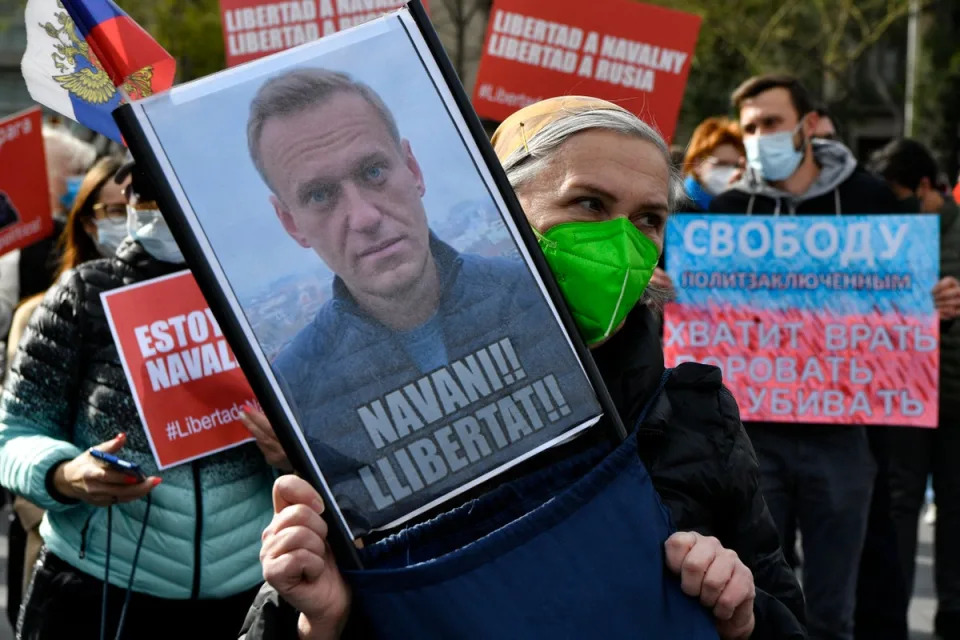
“I am very angry,” said Yevgenia Chirkova, a Russian environmentalist who met Navalny in 2010. “It is a cruel loss for us, for the Russian opposition. The case of Alexei Navaly shows us clearly who Putin is: he is a killer.”
She still remembers the day she first met the enigmatic opposition leader, in Moscow in 2010. She was opposing the building of a motorway through Khimki Forest near the Russian capital.
“We wanted fellow opposition figures to help us so we invited Alexei to a cafe for a meeting,” she said. “I remember being surprised because he was really a very handsome man. Very tall. I was sure politicians were always old and not so handsome in Russia.
“He was charismatic. He was a very warm person. He said he wanted to support us in our Khimki project.”
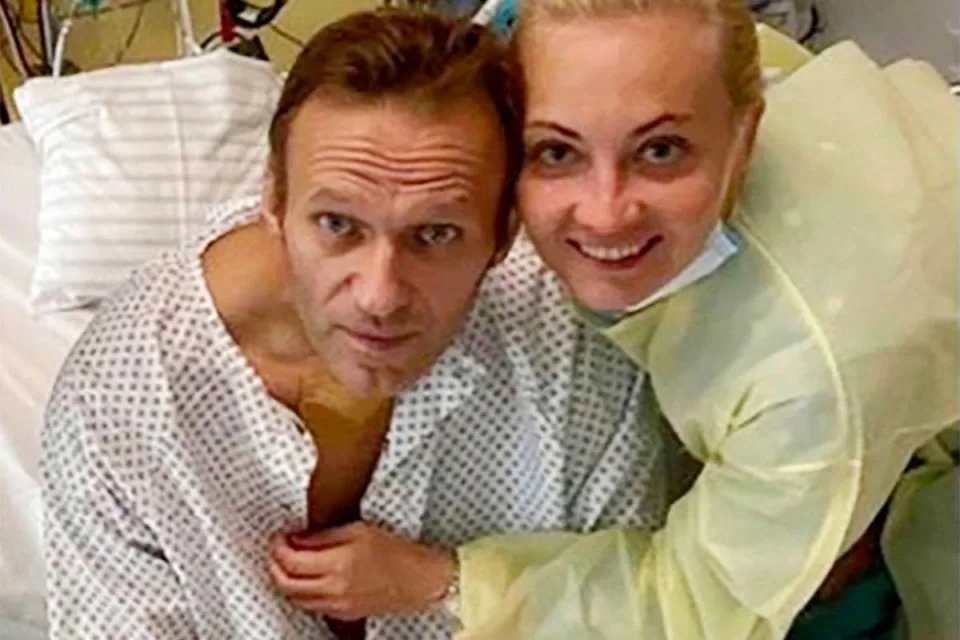
The pair quickly became friends and two years later, Navalny called Ms Chirikova to endorse her run to become the mayor of Khimki.
“He called me and said, ‘I want to support you’,” she said. “I was so shocked because he was so busy. But he personally came to Khimki and together with me, he spoke with people on the street. He was a very talented speaker. He could speak to old people, young people, middle-aged people.”
“He was very funny, full of humour. Everyone who had contact with him, even after only a short conversation with him, was profoundly impacted by him.”
Despite Navalny providing members of his team to Ms Chirikova, her campaign was unsuccessful. Two years later, she fled to Estonia, fearing for her life as an outspoken critic of Putin, who was then in his unconstitutional third term in office. Navalny, however, stayed in Russia.
Navalny knew he would eventually be jailed but hoped to become the “Nelson Mandela of Russia”, according to his friend and fellow anti-corruption activist Bill Browder.
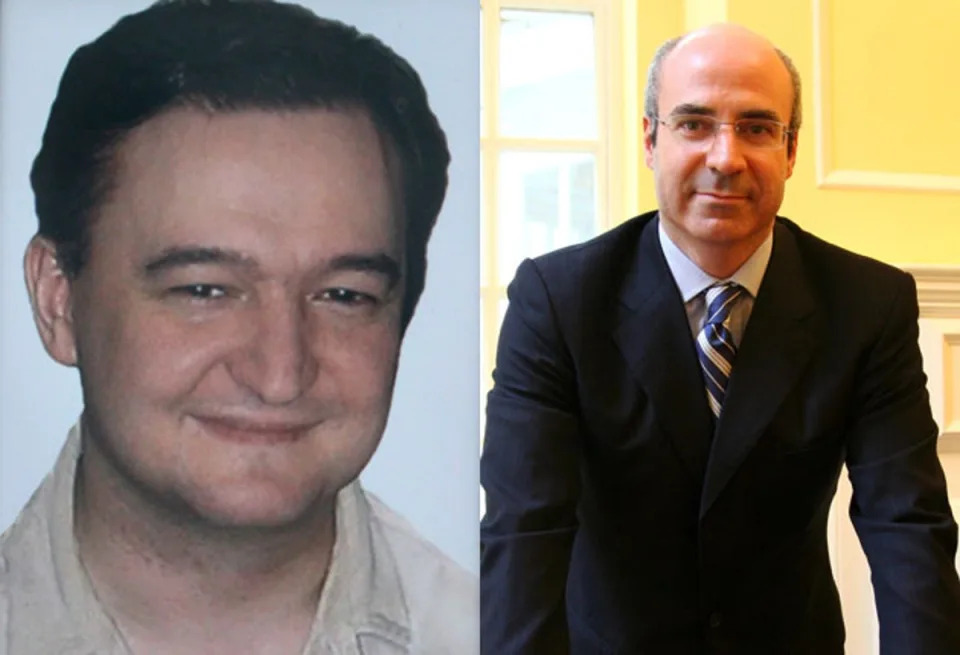
The pair met in 2002. Mr Browder, from the US, would go on to become the largest foreign investor in Russia until he was exiled in 2005 and his assets passed on to oligarchic friends of Putin’s regime.
“We started our careers together as anti-corruption activists in the corporate sphere,” he said. “Both of our careers then mutated into anti-corruption activists in the political sphere.”
When Mr Browder’s lawyer, Sergei Magnitsky, was arrested in November 2008 having exposed corruption within Putin’s regime, Nalavny rushed to help the American.
“He was always an ally and a friend,” Mr Browder said. “Most importantly, when Sergei Magnitsky was killed, he was not afraid to stand up for Sergei and expose the hypocrisy and Kremlin lies every step of the way. He was even sued by some of the same people who were involved in the Magnitsky case for defamation.”
Mr Magnitsky was later tortured to death in prison and for Mr Browder, the news of Nalavny’s death is all too familiar.
“This is total deja vu of the murder of Sergei Magnitsky 15 years ago,” he said. “You have a person who exposed corruption, who was arrested for exposing corruption, was mistreated and tortured in prison and then died suddenly.”

Mr Magnitsky’s killing was never properly investigated. Prison officials at first attributed his death to a “rupture to the abdominal membrane” and later to a heart attack. Mr Browder said he was under no illusion that Nalavny would face the same injustice.
“What I expect to happen next is a full-scale Kremlin cover-up,” he said. “They will say he died of natural causes, there was no sign of violence. They will say they are unaware of any health issues, that people die in prison.
“But let’s make no mistake about it, Putin ordered the killing of Alexei Navalny.”
The opposition figure may not have lived to become Nelson Mandela, he added, “but now that they have killed him, he has become the Martin Luther King of Russia.”
Grigory Chkhartishvili, a Russian-Georgian author who writes under the pen name Boris Akunin, agreed with Mr Browder.
“Alexei was a living symbol of courage,” he said. “Now he becomes an eternal symbol, a banner, absolutely unkillable and undestroyable.”
The dissident novelist, who was charged in absentia earlier this month for “justifying terrorism” and lives in London - began exchanging letters with Nalavny in 2012.
“We have a long history,” he said. “It started with a public exchange of letters in 2012 where I was asking his opinion on different political matters. Then there were periods of disagreement, then we were together again.”
He said he was “totally devastated” by the news of his death.
“For me, he was not only a hero but a human being,” he said. “I am totally devastated.”
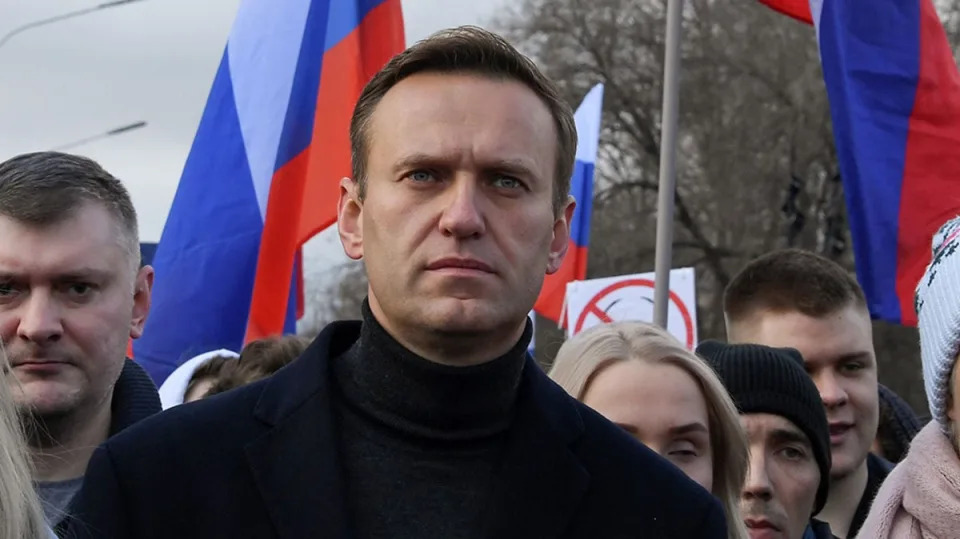
He noted that the last correspondence the pair had was last year, when Nalavny filled out a questionnaire for him while he was in prison. One of his answers read: “I don’t believe in death.”
“Now it reads like an existential manifesto,” Mr Chkhartishvili said.
Navalny’s lawyers have been unable to confirm whether the opposition figure is, in fact, dead, according to his spokesperson Kira Yarmysh.
His mother, Lyudmila Navalnaya, wrote in a Facebook post on Friday that she “doesn’t want to hear any condolences”, for now.
“We saw him in prison on the 12 February, in a meeting,” she wrote. “He was alive, healthy and happy.”
Natalia Arno, founder of Free Russia, an organisation funding opposition to the Putin regime across the world, is concerned that if he is dead, any traces of an alleged killing would be erased.
“It’s so mean it has been done on Friday,” she said. “They [prison authorities] will probably allow the lawyers to get in the prison only on Monday and they will have enough time to hide any traces of their crime.
“This is purely a political assassination of the Kremlin regime - and Putin personally.”



